By Sam’s mum
|
As parents, the loss of a child is probably the greatest pain there is, says Annabella Thomson, whose son Sam fought bravely for six years in a succession of hospitals in Thailand and around the world before succumbing, aged just 12, to a rare type of cancer. This is Annabella’s personal and very moving story about a journey she wouldn’t wish on any family I remember being told once that there can be a moment in your life when you realize that whatever happens next, whatever the outcome, your life will be forever changed. I never really understood how that could happen until I had that moment, and then it completely made sense
|
Of course as life would have it, it can all happen on a very normal day….like January 4th 2015, which began as nothing special but by the end of it, my life and that of my family were to be turned upside down and inside out.
We had just returned after the Christmas holidays to our home in Phnom Penh where we had been living since 2011. Our two children age 10 and 11, were all set to start back at international school the coming Monday and both my husband and I had returned to work. It was all very ordinary.
We had just returned after the Christmas holidays to our home in Phnom Penh where we had been living since 2011. Our two children age 10 and 11, were all set to start back at international school the coming Monday and both my husband and I had returned to work. It was all very ordinary.
The only thing slightly out of our routine was that both kids had developed stomach bugs while on holiday, and Sam our youngest seemed to have a slightly distended tummy, but I just presumed this was due to travel and changes in diet and water. Sam didn’t complain of any tummy pain but I thought I’d take them both to the doctor for a checkup before they returned to school. And that’s when the day stopped being ordinary.
Our daughter was given a quick diagnosis of mild gastric flu and duly prescribed with medication, then came Sam’s turn and within seconds of examining Sam’s tummy I saw the doctor’s eyes widen. I immediately felt that something was wrong but all the doctor would say is that Sam needed an ultrasound straight away. We were then quickly whisked for the ultrasound where they found a large (we are talking the size of a football!) unidentifiable mass in his abdomen. I could see all the doctors and nurses glancing at each other, and I knew then that something was indeed very wrong.
Sam was then asked to go for a CT scan, and I knew by how quickly things were happening that this was serious. Sam himself kept asking what was happening, for as boy who had never even had a night in hospital in his life, he couldn’t understand why he needed all these tests. He kept saying he felt completely fine and he wanted to see his friends and get ready for school. I was later told that the growth had only been there a matter of weeks, possibly two months at the most, it was so aggressive it could grow that quickly.
When we got the CT results we were told that we needed to take Sam to either Bangkok or Singapore immediately. They would only be able to accurately diagnose him after a biopsy and in Phnom Penh at that time there wasn’t the expertise in pediatric illnesses that Sam would require. It was right then that we heard that dreaded word for the first time – “Cancer”.
The next few days, in fact weeks, were a whirlwind of flights, tests and more tests. But in all that I vividly remember Sam and I packing his suitcase for Bangkok that evening. He kept asking how long he would be away for and if he would get in trouble for missing the start of school. I struggled to know how to reply, I really didn’t know what the future would bring us and somehow, we all had to stay strong for Sam.
Looking back I think my naivety at that time was a huge bonus, I don’t think I could have kept it together if I knew what was in store for us. A disease few people have heard of – a little known sarcoma (cancer of the soft tissue), called Desmoplastic Small Round Cell Tumor or DSRCT. A disease we would come to hate with a passion, although when we received the initial diagnosis all I could think was “It has the word Small in it – it can’t be that bad”. How wrong I was!
The next day, thanks to our insurance company, we landed in Bangkok with appointments all lined up for Sam. I’ve lost track of how many doctors we saw in the first 10 days, but by then we had the biopsy results and Sam was to begin his course of treatment. A course of treatment that I could barely comprehend. As I read the schedule of chemotherapy, (six rounds of high dose chemotherapy where Sam would be in hospital and permanently attached to the chemotherapy for a week at a time with 10 days of rest in between each round of chemotherapy.
Our daughter was given a quick diagnosis of mild gastric flu and duly prescribed with medication, then came Sam’s turn and within seconds of examining Sam’s tummy I saw the doctor’s eyes widen. I immediately felt that something was wrong but all the doctor would say is that Sam needed an ultrasound straight away. We were then quickly whisked for the ultrasound where they found a large (we are talking the size of a football!) unidentifiable mass in his abdomen. I could see all the doctors and nurses glancing at each other, and I knew then that something was indeed very wrong.
Sam was then asked to go for a CT scan, and I knew by how quickly things were happening that this was serious. Sam himself kept asking what was happening, for as boy who had never even had a night in hospital in his life, he couldn’t understand why he needed all these tests. He kept saying he felt completely fine and he wanted to see his friends and get ready for school. I was later told that the growth had only been there a matter of weeks, possibly two months at the most, it was so aggressive it could grow that quickly.
When we got the CT results we were told that we needed to take Sam to either Bangkok or Singapore immediately. They would only be able to accurately diagnose him after a biopsy and in Phnom Penh at that time there wasn’t the expertise in pediatric illnesses that Sam would require. It was right then that we heard that dreaded word for the first time – “Cancer”.
The next few days, in fact weeks, were a whirlwind of flights, tests and more tests. But in all that I vividly remember Sam and I packing his suitcase for Bangkok that evening. He kept asking how long he would be away for and if he would get in trouble for missing the start of school. I struggled to know how to reply, I really didn’t know what the future would bring us and somehow, we all had to stay strong for Sam.
Looking back I think my naivety at that time was a huge bonus, I don’t think I could have kept it together if I knew what was in store for us. A disease few people have heard of – a little known sarcoma (cancer of the soft tissue), called Desmoplastic Small Round Cell Tumor or DSRCT. A disease we would come to hate with a passion, although when we received the initial diagnosis all I could think was “It has the word Small in it – it can’t be that bad”. How wrong I was!
The next day, thanks to our insurance company, we landed in Bangkok with appointments all lined up for Sam. I’ve lost track of how many doctors we saw in the first 10 days, but by then we had the biopsy results and Sam was to begin his course of treatment. A course of treatment that I could barely comprehend. As I read the schedule of chemotherapy, (six rounds of high dose chemotherapy where Sam would be in hospital and permanently attached to the chemotherapy for a week at a time with 10 days of rest in between each round of chemotherapy.
Looking |
back I think my naivety at that time was a huge bonus, I don’t think I could have kept it together if I knew what was in store for us
|
This could only begin after a small operation to insert his chemotherapy line which would stay permanently in his chest during all his treatment, and then hopefully after the chemotherapy had shrunk the tumor enough, he would then have a massive operation to remove the remaining tumor and cancer cells, followed by more chemotherapy and 20 rounds of abdominal radiotherapy).
I remember looking at all this in horror and then watching Sam playing happily on his iPad, as he turned around and asked me “Hey Mum, what’s wrong?” and I replied “Nothing Sam. Nothing you need to worry about for now”.
Sam began his first round of chemotherapy at Samitivej Children’s Hospital in Bangkok and had a very bad reaction. He needed blood and platelet transfusions and was very ill for two weeks afterwards, and of course he watched as his lovely blonde curls fell off. All through this, as through all of his treatment Sam coped unbelievably well with it all. He had true belief that this was just something he had to go through and at the end everything would be OK again.
I remember looking at all this in horror and then watching Sam playing happily on his iPad, as he turned around and asked me “Hey Mum, what’s wrong?” and I replied “Nothing Sam. Nothing you need to worry about for now”.
Sam began his first round of chemotherapy at Samitivej Children’s Hospital in Bangkok and had a very bad reaction. He needed blood and platelet transfusions and was very ill for two weeks afterwards, and of course he watched as his lovely blonde curls fell off. All through this, as through all of his treatment Sam coped unbelievably well with it all. He had true belief that this was just something he had to go through and at the end everything would be OK again.
Unfortunately, I had read everything I could find about DSRCT and I knew that it was a killer disease. Only 15% of those diagnosed make it to five years post diagnosis and the average is only 22 months, with long term survivors nearly unheard of. With this sort of prognosis, we were living every parent’s worst nightmare.
I continued my research about DSRCT but the information available was limited as it was so rare. (It was only named as separate illness in 1989 and to date there have been around only 2,000 documented cases globally, mostly healthy teenage boys), I read up on it as much as I could, joining as many forums and constantly looking for better treatment options. I knew that surgery was of key importance, and through help from our insurance we had Sam moved to Great Ormond St Hospital in London where they were able to remove the remainder of the tumor, but also found that it had spread even during chemotherapy to his lymph nodes.
This was very bad news and a sign that DSCRT was still present in Sam’s body. However, we remained positive for Sam, and although the treatment had taken its toll on him physically, he remained in good spirits.
In August 2015, at The Royal Hospital for Sick Children in Glasgow, Scotland (where Sam completed his treatment) we were told that Sam was now “cancer free”, but our joy was dulled by the news that the chances of DSRCT returning was nearly 100%, it was just a matter of when.
But we weren’t going to worry about that just now – Sam was over the moon for this horrible chapter to finally be over so he could return to Phnom Penh, to be with his dad and sister (who had stayed in Cambodia as Sam and I moved to different hospitals around the world), his friends, his much loved dogs, and school again.
Indeed for the next few months Sam very much made the most of his life. Always a sporty and sociable boy, he threw himself back into sports, school and his friends. We were delighted to see him so happy and well again.
Sadly, for Sam it wouldn’t take long for DSRCT to rear its ugly head again. We knew that we would be living from one MRI follow up scan to the next one in three months’ time, and as a parent the fear of what these scans would bring were nearly crippling. I had to give up my job as my focus for this period had to be on Sam, and even if I could have worked I’m not sure my brain would have been up for it. The anxiety and fear could at times be overwhelming.
After a short six months, Sam’s scans showed that there was “tumor growth” this time as numerous small ones in his abdomen and lung area. The prognosis was very poor and we were at a lost to know what to do next. Sam was still asymptomatic, enjoying life and although we never kept anything from him we were cautious in what we told him, Sam needed to enjoy his life as much as possible for as long as he could.
As further treatment was now not possible in the UK or most other countries due to limitations on the amount of chemotherapy they could prescribe we were referred to a surgeon and hospital in Australia, who had agreed to perform HIPEC (Hyperthermic intraperitoneal chemo-therapy where the surgeon opens the abdomen, body temperature is reduced and heated chemotherapy poured directly into the abdominal cavity). A relatively new procedure, it is still not carried out on children in most countries due to the high risk. The recovery period can be up to six months, so we knew that should the procedure go ahead it would be some time before Sam could return home.
I travelled to Australia with Sam and incredibly sadly MRI scans and CT scans there showed that the tumors in barely a few weeks had grown at such a rate that HIPEC would have no benefit. Given that Sam was asymptomatic and looked so incredibly healthy, we couldn’t believe it when we were told that his condition was terminal and that there were no other treatment options available.
We continued for the next few months with less invasive second line chemotherapy in Bangkok to keep the tumors at bay but it had little effect in stopping their growth. Sam became increasingly aware that the situation was not looking hopeful, and it was during this period that Sam and I had moments that will haunt me forever. Two stand out in particular, including one day when he looked me in the eye, full of anger and said “I’m a dying boy aren’t I? I know I am”, and the other when he wouldn’t go to school because he wanted to stay at home with me, as he was worried about what would happen to me when he was no longer around. I had to hide my tears, as there are no rule books for this situation that no parent can ever prepare for.
Whilst all this was going on we also had to focus on being parents to Sam’s big sister, who at only age 13 at the time was having to deal with so much more than any teenager should need to. For many months at a time she was just with her dad in Cambodia, and still had to continue with school as best she could.
I continued my research about DSRCT but the information available was limited as it was so rare. (It was only named as separate illness in 1989 and to date there have been around only 2,000 documented cases globally, mostly healthy teenage boys), I read up on it as much as I could, joining as many forums and constantly looking for better treatment options. I knew that surgery was of key importance, and through help from our insurance we had Sam moved to Great Ormond St Hospital in London where they were able to remove the remainder of the tumor, but also found that it had spread even during chemotherapy to his lymph nodes.
This was very bad news and a sign that DSCRT was still present in Sam’s body. However, we remained positive for Sam, and although the treatment had taken its toll on him physically, he remained in good spirits.
In August 2015, at The Royal Hospital for Sick Children in Glasgow, Scotland (where Sam completed his treatment) we were told that Sam was now “cancer free”, but our joy was dulled by the news that the chances of DSRCT returning was nearly 100%, it was just a matter of when.
But we weren’t going to worry about that just now – Sam was over the moon for this horrible chapter to finally be over so he could return to Phnom Penh, to be with his dad and sister (who had stayed in Cambodia as Sam and I moved to different hospitals around the world), his friends, his much loved dogs, and school again.
Indeed for the next few months Sam very much made the most of his life. Always a sporty and sociable boy, he threw himself back into sports, school and his friends. We were delighted to see him so happy and well again.
Sadly, for Sam it wouldn’t take long for DSRCT to rear its ugly head again. We knew that we would be living from one MRI follow up scan to the next one in three months’ time, and as a parent the fear of what these scans would bring were nearly crippling. I had to give up my job as my focus for this period had to be on Sam, and even if I could have worked I’m not sure my brain would have been up for it. The anxiety and fear could at times be overwhelming.
After a short six months, Sam’s scans showed that there was “tumor growth” this time as numerous small ones in his abdomen and lung area. The prognosis was very poor and we were at a lost to know what to do next. Sam was still asymptomatic, enjoying life and although we never kept anything from him we were cautious in what we told him, Sam needed to enjoy his life as much as possible for as long as he could.
As further treatment was now not possible in the UK or most other countries due to limitations on the amount of chemotherapy they could prescribe we were referred to a surgeon and hospital in Australia, who had agreed to perform HIPEC (Hyperthermic intraperitoneal chemo-therapy where the surgeon opens the abdomen, body temperature is reduced and heated chemotherapy poured directly into the abdominal cavity). A relatively new procedure, it is still not carried out on children in most countries due to the high risk. The recovery period can be up to six months, so we knew that should the procedure go ahead it would be some time before Sam could return home.
I travelled to Australia with Sam and incredibly sadly MRI scans and CT scans there showed that the tumors in barely a few weeks had grown at such a rate that HIPEC would have no benefit. Given that Sam was asymptomatic and looked so incredibly healthy, we couldn’t believe it when we were told that his condition was terminal and that there were no other treatment options available.
We continued for the next few months with less invasive second line chemotherapy in Bangkok to keep the tumors at bay but it had little effect in stopping their growth. Sam became increasingly aware that the situation was not looking hopeful, and it was during this period that Sam and I had moments that will haunt me forever. Two stand out in particular, including one day when he looked me in the eye, full of anger and said “I’m a dying boy aren’t I? I know I am”, and the other when he wouldn’t go to school because he wanted to stay at home with me, as he was worried about what would happen to me when he was no longer around. I had to hide my tears, as there are no rule books for this situation that no parent can ever prepare for.
Whilst all this was going on we also had to focus on being parents to Sam’s big sister, who at only age 13 at the time was having to deal with so much more than any teenager should need to. For many months at a time she was just with her dad in Cambodia, and still had to continue with school as best she could.
Aftera short six months, Sam’s scans showed that there was “tumor growth” this time as numerous small ones in his abdomen and lung area. By May 2016, we had run out of options for Sam and poured all our energy into giving him the best time he could have. Thanks to all our community support and kindness we were able to raise funds for Sam to fulfill his bucket list of things he wanted to do. He went to watch Manchester United in their final game of the season, went surfing in Bali, and did all the things he wanted to do – we made sure of that.
Gradually the tumors started to have an effect on Sam and just after his 12th birthday in September 2016, he began to complain of pain in his tummy and chest, and I could start to see the swelling in his lymph nodes. On 15th September 2016, I flew with Sam back to Bangkok as his pain level had increased to a level where it was no longer manageable at home. Sam was back at Samitivej Srinakarin Hospital, where we had started treatment 21 months earlier and we began his palliative care. For over five weeks Sam bravely battled the growing tumors, and with the help of the medical team at the hospital we were able to manage the increasing pain. |
to all our community support and kindness we were able to raise funds for Sam to fulfill his bucket list of things he wanted to do. He went to watch Manchester United in their final game of the season, went surfing in Bali, and did all the things he wanted to do – we made sure of that.
On 26th October 2016, during one of the biggest thunderstorms I remember seeing in Bangkok, Sam left us, peacefully and with his family at his side. I truly believe that the thunderstorm was Sam protesting at having to leave, all he wanted was to just to live his life and be with his family and friends. We miss Sam incredibly, each and every day, and we always will. A light forever gone from our house.
In the last nearly eight years since Sam was originally diagnosed, our family’s life has changed forever. As parents, the loss of a child is probably the greatest pain there is. And for Sam’s sister, the loss of a sibling at such a young age changes your perspective on everything. We have been so fortunate that she has managed so well but I know she misses her brother always. Siblings are often forgotten or given less focus than parents and it has taken her great courage and strength to get where she now is. She has finished school, did very well academically, and is now at university in the UK. We are very proud as Sam would be, of all she has achieved.
Thank you to all our friends and family who have supported Sam and our family through the most difficult times. Also thank you to Lawtonasia – Bangkok, Samitivej Srinakarin Hospital - Bangkok, Great Ormond St Hospital- London, The Royal Hospital for Sick Children - Glasgow, and Dr. Chris Kirby in Adelaide for being with us during our journey with Sam.
Since Sam’s passing our family has been active supporters of RobsArttt, a charity that supports research into DSRCT at the Royal Marsden Hospital in the UK. For more information about RobsArttt please contact: [email protected], website: www: robsarttt.co.uk
In the last nearly eight years since Sam was originally diagnosed, our family’s life has changed forever. As parents, the loss of a child is probably the greatest pain there is. And for Sam’s sister, the loss of a sibling at such a young age changes your perspective on everything. We have been so fortunate that she has managed so well but I know she misses her brother always. Siblings are often forgotten or given less focus than parents and it has taken her great courage and strength to get where she now is. She has finished school, did very well academically, and is now at university in the UK. We are very proud as Sam would be, of all she has achieved.
Thank you to all our friends and family who have supported Sam and our family through the most difficult times. Also thank you to Lawtonasia – Bangkok, Samitivej Srinakarin Hospital - Bangkok, Great Ormond St Hospital- London, The Royal Hospital for Sick Children - Glasgow, and Dr. Chris Kirby in Adelaide for being with us during our journey with Sam.
Since Sam’s passing our family has been active supporters of RobsArttt, a charity that supports research into DSRCT at the Royal Marsden Hospital in the UK. For more information about RobsArttt please contact: [email protected], website: www: robsarttt.co.uk

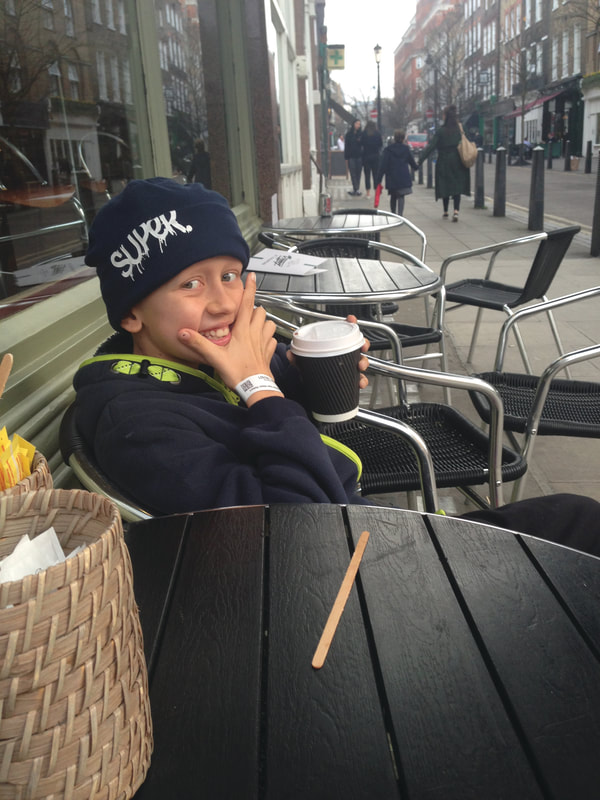
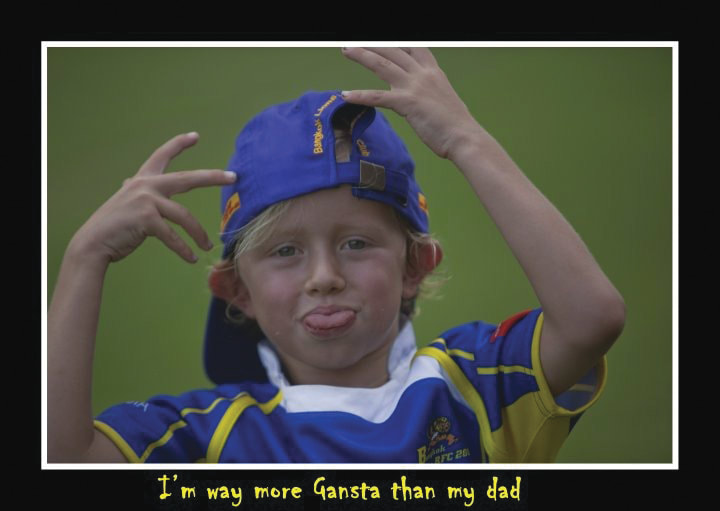
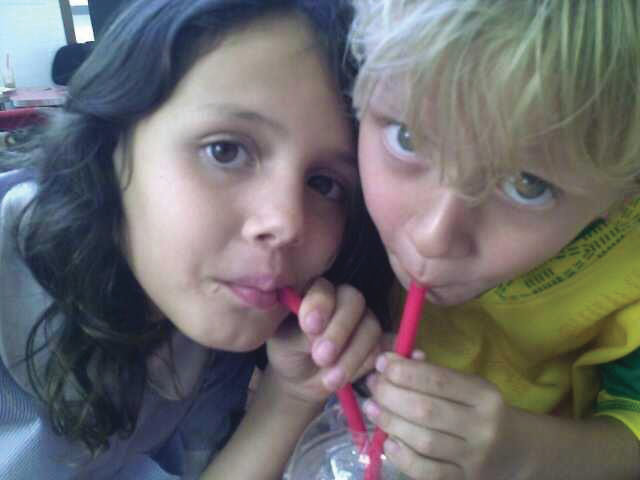
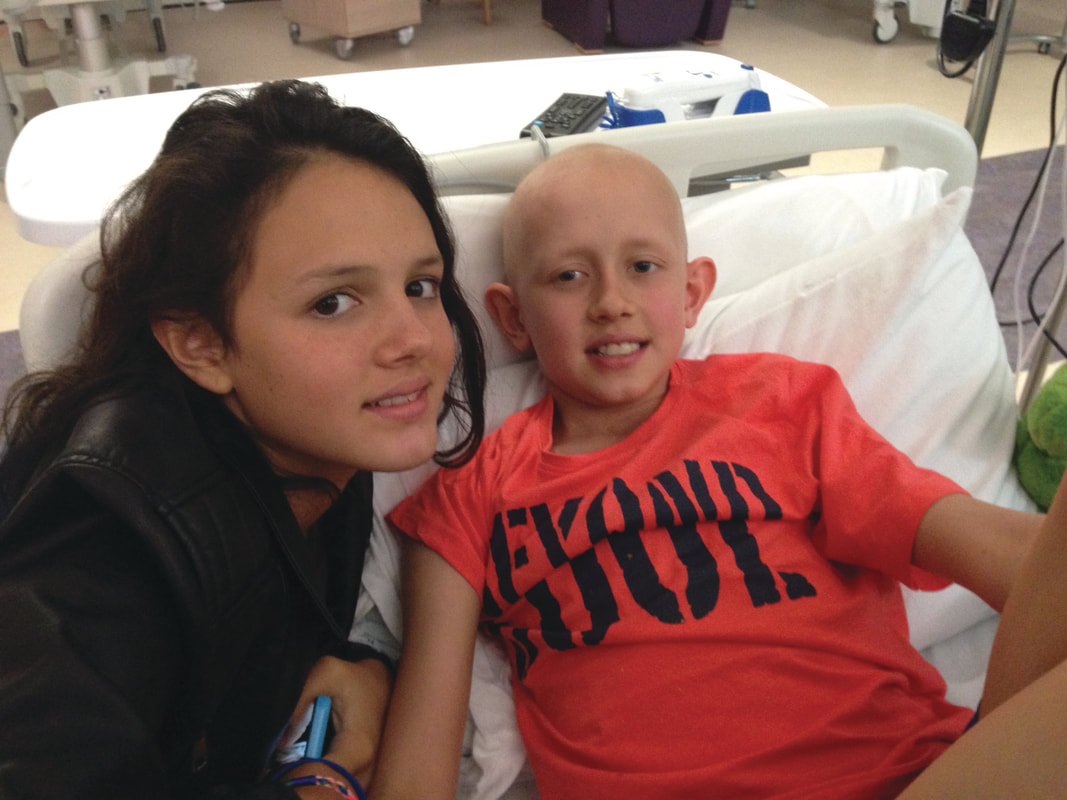
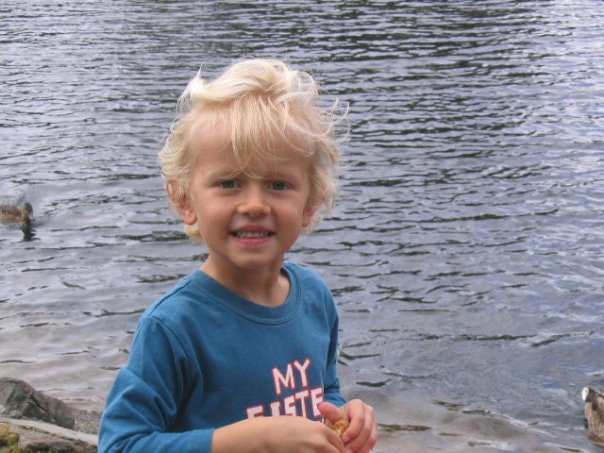
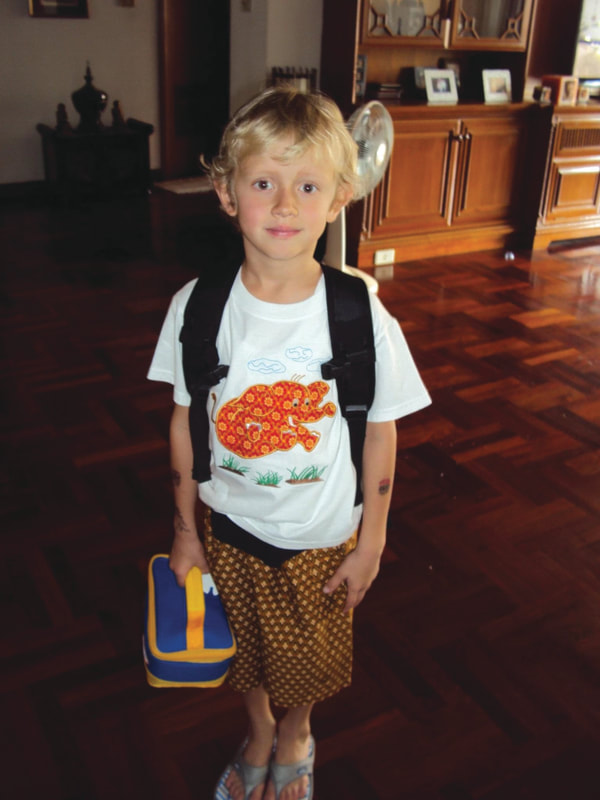
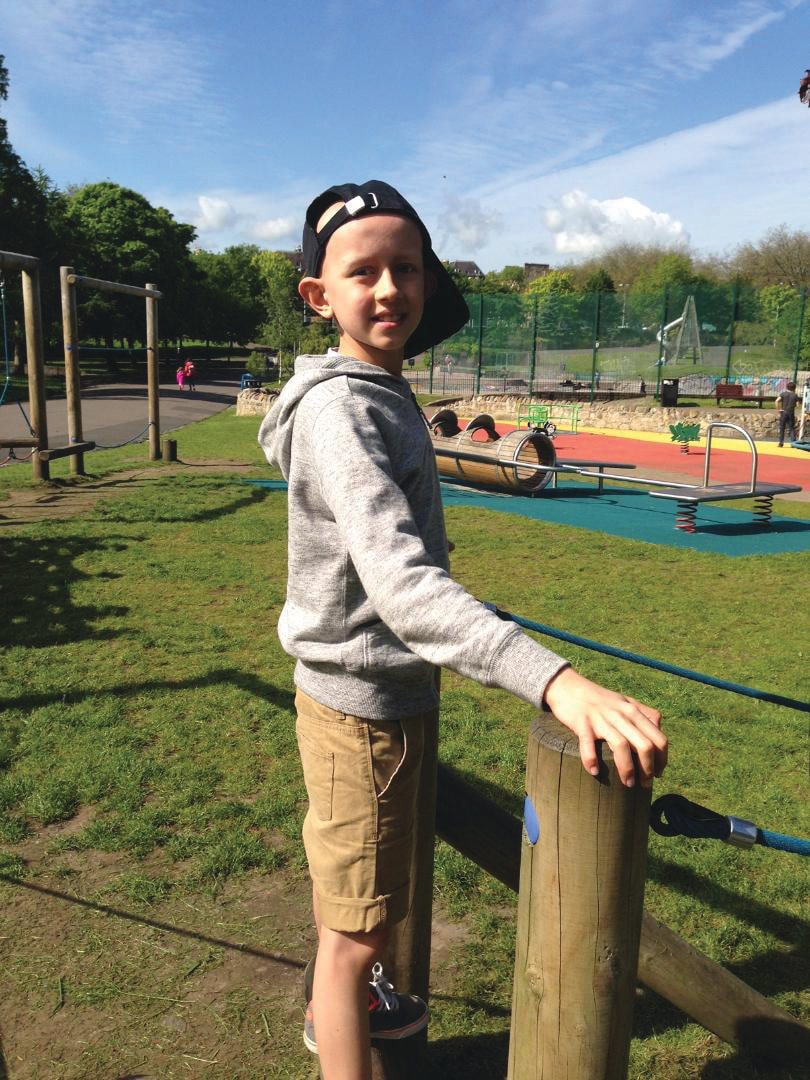
 RSS Feed
RSS Feed
















